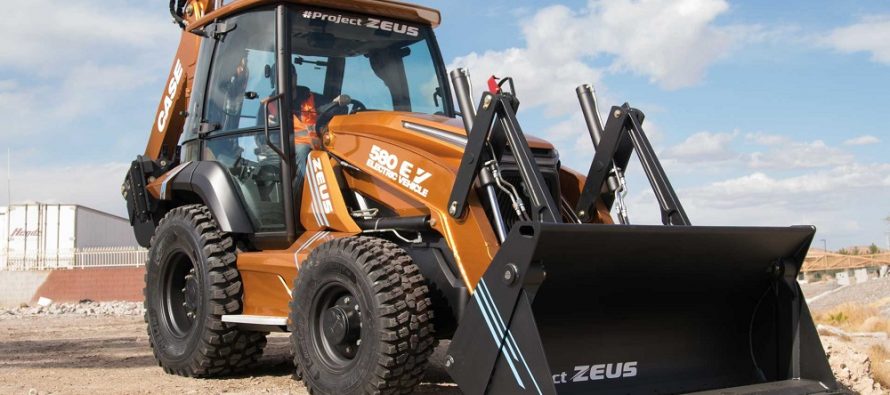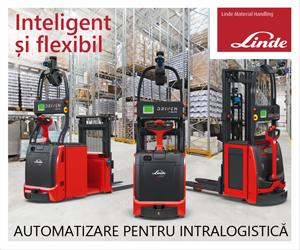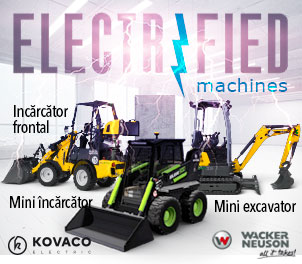Case has unveiled “Project ZEUS” — the industry’s first fully electric backhoe loader

Related Articles
Case Construction Equipment has introduced “Project ZEUS” — the 580 EV (Electric Vehicle), the construction industry’s first fully electric backhoe loader. The power and performance of the 580 EV are equivalent to other diesel-powered backhoes in the Case product line and provide considerably lower daily operating costs while also producing zero emissions — a motivating factor for utility and government contractors incentivized to work with equipment that leverages alternative fuels and lowers emissions.
 “Case built the very first factory-integrated backhoe loader in 1957 and has been at the forefront of backhoe innovation,” says Leandro Lecheta, head of construction equipment — North America, CNH Industrial. “The 580 EV is a significant step forward in our commitment to sustainability, the evolution of earthmoving equipment and truly practical innovation that drives real savings and competitive advantages for backhoe owners.”
“Case built the very first factory-integrated backhoe loader in 1957 and has been at the forefront of backhoe innovation,” says Leandro Lecheta, head of construction equipment — North America, CNH Industrial. “The 580 EV is a significant step forward in our commitment to sustainability, the evolution of earthmoving equipment and truly practical innovation that drives real savings and competitive advantages for backhoe owners.”
The 580 EV is the second major alternative-powered machine introduced by CASE — the manufacturer rolled out the FPT Industrial methane-powered concept wheel loader ProjectTETRA at Bauma 2019. Electrification was performed in conjunction with Green Machine, Inc. and Moog, Inc., and with direct input from utilities and other businesses focused on converting significant portions of their fleets to fully electric backhoes. Case also partnered with Michelin to outfit the first-of-its-kind machine with specialized Michelin CrossGrip tires for even greater efficiency and handling.
Electrification ideal for utilities, urban environments
The 580 EV is powered by a 480-volt, 90-kilowatt-hour lithium-ion battery pack that can be charged by any 220-volt/three-phase connection. While applications will vary, each charge will support most common eight-hour workdays. The battery separately powers the drivetrain and hydraulic motors, resulting in hydraulic breakout forces equal to diesel-powered machines and improved performance during simultaneous loader and drivetrain operation.
 Sustainable for budgets and the environment
Sustainable for budgets and the environment
The 580 EV operates with zero emissions — lowering the total carbon footprint for its owners. These are important environmental considerations, but the new backhoe also helps improve fiscal sustainability.
• While every application will be different based on its workload, it is estimated that the 580 EV could save fleets as much as 90 percent in annual vehicle service and maintenance costs when taking into account the reduction/elimination of diesel, engine oil, diesel exhaust fluid, regular preventive maintenance and long-term engine upkeep/maintenance (and the associated labor rates and time savings).
• Some utilities and contractors are incentivized to deploy electric equipment and vehicles in their fleets, providing even greater financial benefit and further lowering the total cost of ownership.
• Operating electric construction equipment may make contractors eligible for work they may have otherwise been unable to bid on, expanding their business opportunities and allowing them to win more work each year.
• While the 580 EV will be sold at a higher initial price than diesel-powered backhoe loaders, it is estimated that average fleets will see a payback on that premium in roughly five years. All savings achieved after that will go to improve the bottom line and continue to lower the operation’s carbon footprint.
Each 580 EV comes standard with Case SiteWatch telematics for additional monitoring and management of machine performance and utilization.
Historic Case backhoe performance — improved operating environment
While the new 580 EV is electrified, it retains many of the hallmark features that contractors expect from Case backhoe loaders. It retains the precision and efficiency of diesel-powered Case backhoes with features such as ProControl, which allows for extremely precise boom movement and placement, as well as Comfort Steer, which significantly improves steering while working in tight quarters or in truck loading operations. The machine’s cab is spacious with large windows that provide excellent sightlines to all sides of the machine. It also features the new and enhanced joystick controls found in the most recent generation of Case N Series backhoes, as well as in-cab amenities such as premium seat options and Bluetooth radio.
 Adding power and ease to the ride
Adding power and ease to the ride
Case has partnered with Michelin on tires for two of its alternative-powered equipment solutions — the methane-powered ProjectTETRA wheel loader, and now the 580 EV backhoe loader. The 580 EV backhoe loader showcased at Conexpo-CON/AGG 2020 included Michelin CrossGrip tires that feature a non-directional tread design and provide exceptional handling, comfort and high-load capacity for operation on a variety of surface conditions from asphalt to snow.
The new Michelin CrossGrip is a multi-purpose radial tire designed for use on the road, grass and snow. Using a special rubber compound, this four-season tire is designed for high-load-capacity use on loaders, backhoes, telehandlers and tractors. The tire has a patented, non-directional tread for excellent handling in both forward and reverse gears. With 196 tread blocks per wheel rotation, the tire achieves driver comfort by reducing vibration. Asymmetrical lateral blocks help to provide good traction in winter conditions when short starting and stopping distances are imperative for safety. Reinforced for excellent puncture resistance, CrossGrip is designed to offer increased productivity and can be studded for ice usage.
The future of electric
The 580 EV is the first formal entry into the electric equipment market for Case. The manufacturer, in partnership with FPT Industrial, continues to explore additional solutions in electrification, alternative fuels and alternative propulsion systems for equipment across all product lines and industries that help achieve sustainability for all in the construction industry without sacrificing power and performance. These solutions will be introduced and brought to market as industry demand requires.






